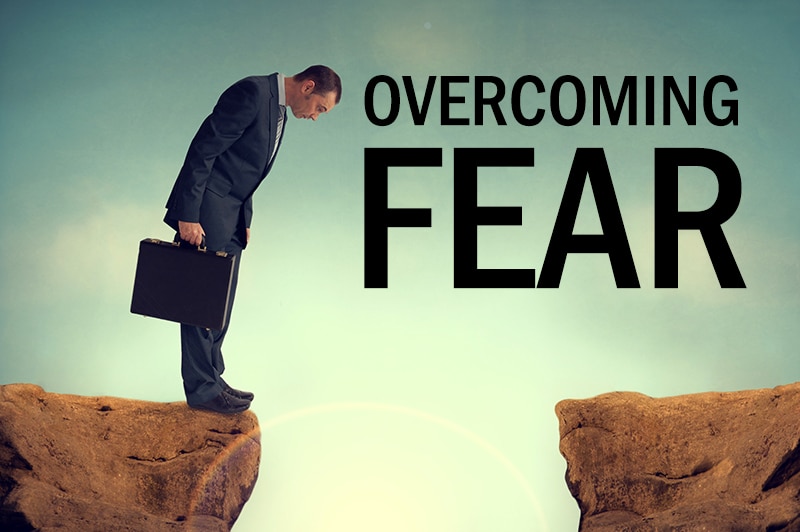It’s not a secret that many people would rather go through an IRS audit than go to the dentist. Studies estimate nearly 20% of Americans are currently avoiding the dentist, and have been for years, due to severe dental anxiety, fear of the dentist, or phobia. Like all fears, dental anxiety and phobia are developed by our culture, history of negative experiences, and our mindset. No one is born with a fear of the dentist. Just as a fear of the dentist can develop, overcoming the fear of the dentist can occur over time.
Dr. Charles Sutera, one of the leading sedation dentists in the US, sat down with several of his patients for a short Q&A. Here we share the most common reasons for dental phobia and what has helped them overcome their fear of the dentist.
Fear of the Unknown
The fear of the unknown is the root of many types of fears and anxiety. Human instinct is to seek security and situations that are familiar to them. When there is a possibility of something unexpected happening it creates anxiety, regardless of the situation. Like a baby who cries when their mother leaves, we all value a guarantee of security and protection in our lives. It’s something we all share. But it is also when we allow ourselves to challenge this fear that truly remarkable things happen.
Many patients that have had dental anxiety said: “they worried if they will have a good rapport with their new dentist, they worried that something bad will be found, and they worried that the treatment could be uncomfortable.” They shared that by setting proper expectations prior to treatment and by openly communicating their thoughts and fears with their dentist allowed the experience to be tailored to ease the fear of the unknown.
Fear of Pain
Dentistry and medicine have a stigma with pain. In a survey of people who had not seen a dentist for over a year, 6% reported fear of pain as their primary reason for fearing the dentist. The fear of pain is most common in adults as we get older. This may be because their early dental visits happened before many of the advances in “pain-free” dentistry. It’s true there is a stigma that dentistry in the old days was painful, but in today’s world, you don’t have to believe that stigma. A modern dentist should always ensure your treatment is comfortable and pain-free. If you are ever in pain during treatment, you can request more anesthetic or other requests at any time. Patients who have overcome dental phobia have sited that building trust from consistently pain-free dentistry helped their phobia to decrease over time.
Feelings of loss of control
Why would anyone ever want to feel out of control or helpless? In any situation, people develop anxiety when they have to relinquish control. This is why going to the dentist, flying in an airplane, and fear of death are some of the top fears we all share. It’s all about our loss of control. When people are in a dental chair there is a certain amount of loss of control that occurs. However, when successfully done, that power shift is based on trust and care. Prior to treatment, a patient should feel confident in their provider clinically, ethically, and empathetically. Developing this trust is similar to trusting a partner in a marriage. Yes, giving up control can be scary, but when trusted to the proper provider it enriches your life many times over for that small leap of faith in trust. Most patients who have stated fear of loss of control at the dentist as their primary fear say they overcame the fear by finding a provider they developed a strong professional bond with. Trust is earned. It doesn’t happen immediately. However, on your first consult visit, you should have a sense that you’re investing in building trust with the right dentist.
Embarrassment
The mouth and face is a very personal and intimate part of who you are. It is estimated that over 70% of the population wishes they could change something about their smile. People feel embarrassed or ashamed to reveal a body part they have been self-conscious about for years. Patients that have been embarrassed by their mouth often say after treatment, “I wish I corrected it sooner.” That’s incredibly powerful. If you are embarrassed or ashamed by something, no one will ever judge you for doing something to better yourself. Why should you delay being the best version of yourself? Once you take the steps towards improving your source of embarrassment, this fear usually becomes a fear of the past.
Bad Previous Dental Experiences
And so you have it. The most common cause of dental anxiety is one or more dental experiences that were negative. Most people don’t fear the dentist that has only had wonderful dental experiences. It’s that one dental experience that you never forget that begins to engrain the fear over time, and you enter all future dental experiences with an armor, shield, and wall around you…whether it’s warranted or not. Anyone who has had pain or discomfort during previous dental procedures is likely to be more anxious the next time around.
There are a few common things that happen when a patient is fearful of the dentist. If you experience any of the below…begin by talking with your dentist. They should listen and help to understand what you need to make your experience pain-free. Some common occurrences with dental anxiety are:
- Trouble sleeping the night before a dental visit/appointment
- The temptation to cancel your dental appointment a few days before
- Feelings of nervousness which escalates while at the dental office waiting room
- Crying or feeling physically ill when at the dentist
- Intense uneasiness at the thought of, or actually when, objects are placed in your mouth during the dental treatment or suddenly feeling like it is difficult to breathe
- Fear of gagging
IV Sedation and Sedation Dentistry
In some cases, an individual may benefit from a dentist who understands dental anxiety very well. These dentists, called sedation dentists, see anxious patients all day long. A sedation dentist will focus on scheduling a longer consultation to learn not only about your clinical conditions, but also who you are, your background, and any fears you have. You will develop a strong rapport with the sedation dentist before any treatment is done.
A sedation dentist will also have advanced comfort items such as a coffee or water, soothing spa-like amenities, hot-towels, warm blankets, cinema-style TVs with noise-canceling headphones, and extra team member is dedicated to your comfort. At a sedation dental practice, there are additional levels of local anesthesia, oral sedation, and IV sedation where you can actually sleep through your treatment. A patient undergoing dental sedation will be able to complete their treatment comfortably and efficiently in fewer appointments.
Dental sedation and sleep dentistry with an experienced sedation dentist is also incredibly safe. The patient is always breathing on their own control, and the medications used are completely reversible. Most patients find that as they build trust with their sedation dentist they eventually no longer require sedation for their future dental treatment.


